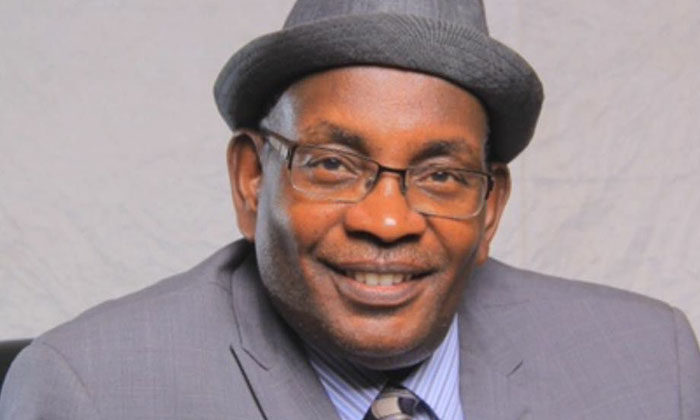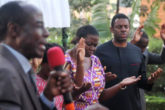
Last Friday, March 27, the Daily Monitor Newspaper carried an article, in its online version, in which they said….”China will never forget the invaluable support and solidarity given by Uganda and other African countries during China’s most trying moments, including this challenging period in the fight against Covid-19. President Museveni sent a letter of solidarity to Xi Jinping, the President of the People’s Republic of China. People of all walks of life, including Ugandan students in Wuhan and other cities in China, also expressed their support and solidarity towards China in China’s efforts to combat the virus…. Now that the situation is getting better in China, China will, as always, support African countries, including Uganda to the best of her capability, as she continues the arduous fight against Covid-19 at home. Indeed, to date, China is delivering 12,000 more testing kits for African countries via Africa Centres for Disease Control and Prevention (Africa CDC). Chinese medical teams in different African countries are assisting the host countries in their fight against the pandemic.”
It is that underlined sentence that caught my attention. Testing kits. If China is winning the battle, it is the ability to sort out the sick from those that are well. The declaring of hand washing, social distancing, curfew and stay home is only half the good! We need to use whatever methods are available for us to separate those that are with and those without the virus! I am further writing to suggest that Government turns our worship centres, churches and mosques, or at least our open yards and parking lots into small scale Covid-19 Testing Centres.
The success story of China in fighting this pandemic has highlighted the need for every nation to create a robust and sustainable system allowing for rapid medical (should say, hygiene) education, action, development, dissemination, and implementation of diagnostic tests targeted against any infectious disease, especially those of global proportions. Below are my fifty cents for advocating for testing as a remedy in this fight!
We have all heard how President Museveni sent over 60 Ugandan soldiers to Cuba for training. After some months, the former Cuban President, Fidel Castro called President Museveni for a meeting which in the end revealed that some 18 UPDF soldiers were infected with HIV/AIDs, something that needed a joint effort from both governments. Cuba tested our officers on enlistment, that Uganda hadn’t cared about! The rest is history!
Testing helps to provide healthcare workers with the answers they need to make critical patient-management decisions. This will require them to think creatively, so that testing for novel and emerging pathogens (bacteria, viruses, or other microorganisms that can cause disease) can be implemented in both public health and clinical laboratories in a timely fashion. To accomplish this goal, there has to be substantial logistical challenges and resource limitations to overcome. However, communal and individual testing is certainly a challenge worth taking on, and one in which we can all be successful by working together.
The value of a test comes from two of its important aspects: specificity and sensitivity. Infected patients should be correctly identified as infected, patients who don’t carry the virus should be diagnosed as such, and people that unknowingly had the infection should be tested for immunity or the lack of it. This helps us understand who is infected, where the infection occurred, and how the virus was transmitted.
Testing is also needed to address the uncertainty in making decisions about patient treatment, resource allocation, policy, and so much more. Answers to questions such as: “Is hand washing really working? Are these sprays having any effect, positive or negative? When should we relax social distancing measures? What pressure has this silly virus put on our economy? What are we going to forfeit and fore-go in order to have a steady recovery of our lives!” These questions are vital but cannot be answered without reliable test data.
However, would those who feel alright, be free to test their status without any resistance? For virtually all organizations — not just those in health care — having a testing strategy and building a culture to execute it are crucial when dealing with a crisis. Time and again, I have seen how as organizations try to scale testing capacity, they often find that the obstacles are not necessarily technology, but cherished behaviors, beliefs, and values. Testing early and often is often viewed as wasteful in the eyes of organizations that emphasize efficiency and predictability. That’s until, of course, the opportunity cost of not testing becomes blatantly obvious, especially where precious time and meaningful lives have been lost!
The question on everyone’s lips is what if all the cases in Uganda are imported! Many cannot see how any common peasant in remote Bukomansimbi or Bukwo can get the virus. It is a disease of the city-dwellers! It is a traveller’s malady! There is so much to doubt. To reduce uncertainty, health organizations need to make testing an integral part of what they are doing, however crude, and yes, even when budgets are tight. A good test will show not only the status of the nation’s health, but what does and does not work. Health and security workers will then improve decision-making, whether it’s about the design of a product, the implementation of a new policy, or how to treat patients.
Our government must put in place systems, resources, and organizational designs that allow for large-scale testing. We all know that scientific testing requires infrastructure: instrumentation, data pipelines, scientists, people, and materials if tests are physical, as they are expected in mother Uganda. It also requires a sense of urgency: leaders need to resist the so-called “Not Invented Here Syndrome — Ebyo Malyansimbi” the unwillingness to accept proven solutions that work.
In my kind of world, proof reigns over doubt! Believers are certain about what they confess! In science, data trumps over opinions. The test results prevail with few exceptions when they clash with strong opinions, no matter whose opinions they are. It is clear that we must not gather people in one place, but they still gather in hospitals! To avoid mixing the sick among those who are not, test centres are needed. Even the stadia, play grounds and other open places where social distancing can be fully exercised. I am only advocating for use of these now free premises! I believe all vicars of our cathedrals will be willing to use their premises to check their faithfuls or the community around their parishes. I so move!
Dr Joseph Serwadda is the Presiding Apostle of the Born Again Faith in Uganda.
josephserwadda@gmail.com

